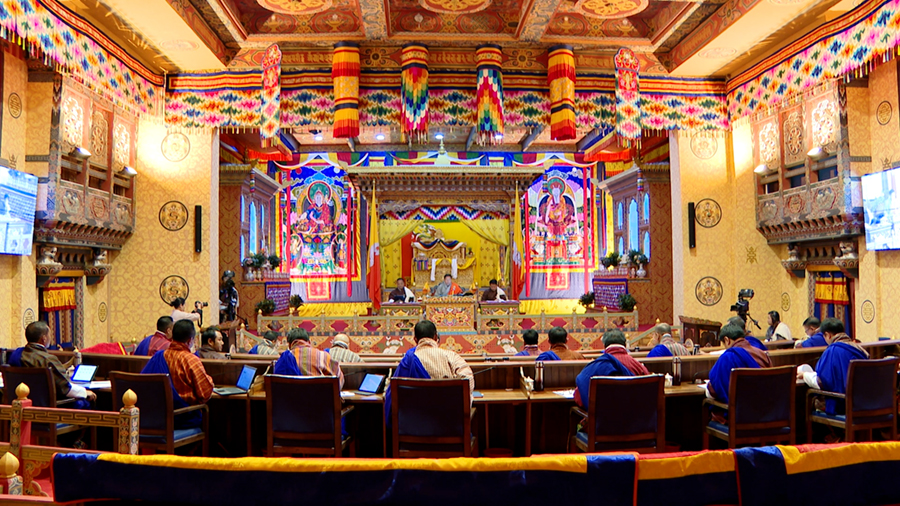
The National Council today expressed dissatisfaction with the government’s handling of several resolutions passed during the summer session, particularly those related to the Satong and Gungtong review reports. Of the 12 resolutions on Satong and Gungtong, two responses were deemed unsatisfactory, while three responses—received just yesterday—were considered “too late” for proper review and consideration.
The Council voiced its concern over the responses regarding two key issues: the conversion of fallow land for productive farming and the design of a Community Vitality Program aimed at improving the livelihoods of people living in border areas. Members stated that the response on fallow land conversion came from the National Land Commission, which they believe is an inappropriate authority. Additionally, the response to the Community Vitality Program was criticised for being misinterpreted.
“This issue is directly related to agriculture, and we expected the response to come from the Ministry of Agriculture. Instead, we received a response from the National Land Commission. The response from the commission says that the commission do not have a policy for fallow land conversion as of now. Moreover, it says that there is no developmental programmes designed to leverage on fallow lands available. However, it says that if the relevant agencies or the ministry come up with policies, it would collaborate and support them.” said Phuntsho Rapten, an Eminent Member of the National Council.
The House also expressed dissatisfaction with the responses it received yesterday on three important issues: access to credit, agricultural marketing, and incentivising youth. The House said the responses were received too late for meaningful consideration.
“It would be beneficial if the government could coordinate with gewog offices and design well-packaged, innovative schemes to encourage youth to return to their communities. Additionally, providing job opportunities, creating markets, and offering skill development courses would further strengthen this effort. Our 11th recommendation was specifically about encouraging youth to return home, but we did not receive the response until last evening,” added Phuntsho Rapten, an Eminent Member of the National Council.
“I am concerned because when I visit gewogs and districts, people question the purpose of the National Council and whether our work is being acknowledged. Their concerns have been validated today. When we receive responses after a week, and some are misinterpreted or unclear, it undermines the credibility of the recommendations we submitted six months ago,” said Sonam Tobgyel, MP, Trashigang.
“Receiving responses at the last minute, and some without responses altogether, feels like a lack of respect for the Council. It is discouraging for us as a committee and makes it difficult to carry out our work effectively,” said Phub Dorji, MP of Wangdue Phodrang.
“If we could request the Prime Minister to respond to these issues during our question-and-answer session, we could understand where the failure occurred—whether at the ministry, agency, or another level—and hold the responsible party accountable,” said Ugyen Tshering, MP, Paro.
The National Council passed three key resolutions during the summer session: one on compensation-related policies for human-wildlife conflicts and crop damage due to natural disasters, one on the state of persons with disabilities, and the review reports on Satong and Gungtong.
The Chairperson suggested the House Committee to coordinate to obtain the necessary responses from the prime minister.
Karma Wangdi
Edited by Kipchu








